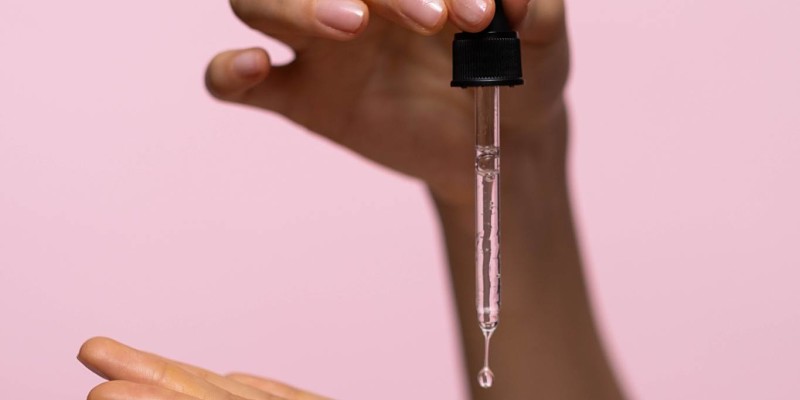Retinol and Heightened Skin Sensitivity
Retinol can be highly irritating if used too frequently. It will also cause irritation if the formulation is too strong for your skin type. When using retinol always start off with a small amount and gradually work your way up. For example, using it just twice a week and slowly increasing usage gives your skin a chance to acclimatise.
As a result of retinol causing skin sensitivity>, retinol products should never be used on days where you exfoliate. This is because exfoliating causes skin abrasion and leaves the skin more susceptible to irritation. It's the same story when combining retinol and sunbeds. You don't want to compromise your skin even further when sensitivity is already heightened.
Retinol and Sunbeds
As it's a strong ingredient, retinol makes the skin more sensitive to UV rays. This is the main reason retinol and sunbeds should never be combined. As retinol products leave the skin more susceptible to UV damage, the negative effects of using a sunbed increase. Furthermore, retinol is sensitive to UV exposure. This basically means that the retinol becomes almost completely useless, losing its effectiveness when exposed to UV rays.
It's also for this reason that nighttime use of retinol is best. For further protection, always use broad spectrum SPF the following day after using retinol to protect the skin.
On top of this, retinol and sunbeds also have counteractive effects. Retinol is one of the most advanced anti-aging ingredients out there. On the other hand, sunbeds damage the skin, resultantly speeding up the aging process. In summary, if you're using both retinol and sunbeds, the anti-aging effects of the retinol become redundant.
First of all, let’s consider the question “Does retinol make you tan faster?”. To explain this issue, we should consider what effect the ingredient has on skin cells. Retinol attracts sunlight, UV radiation, free radicals, and other environmental aggressors. Thus, it is true that retinol speeds up tanning. However, this can have a negative consequence on your skin, leading to severe skin problems.
Below, let’s consider the issue of “Can I use retinol after tanning?” and how retinol and tanning beds affect each other.
What Happens If You Go Into The Sun With Retinol?
Retinol-contain skincare products are not recommended for usage when you plan to spend a lot of time under the sun since the ingredient tends to multiply the negative impact of the sun and UV radiance on skin cells. Thus, retinol attracts UV light and sun rays to the skin, improving skin sensibility and free radical penetration. Thus, it is obvious that retinol and sun are non-compatible.
Still, if you have to go out after using retinol, wait for at least several hours. Thus, answering the question “How long after using retinol can you go in the sun?”, no less than several hours should pass. This is why most retinol-rich products are designed for a night application.
Can You Use Fake Tan When Using Retinol?
So, answering the question “Can you tan while using retinol?”, note that fake tan does not come into reaction with retinol and does not cause any problems in cells. Thus, it is not forbidden to apply both skin products simultaneously.
Does Retinol Ruin Fake Tan?
Practically, retinol does not interact with fake tan. Thus, it cannot ruin it. Another important question is “Can I use retinol on tanned skin”. Here, note that it is advisable to apply skincare products under fake tan. First, apply your moisturizer and then put on a fake tan.
Can You Use Retinol in the Summer?
“How to tan while using retinol” is a popular question in a hot season. Note that it is not recommended to use retinol in the summer since it increases skin photosensitivity, meaning that cells become more vulnerable to UV radiation, free radicals, and other negative influences of the sun.
Thus, if you want to use skincare products with this ingredient in the summer, remember the issue of retinol and sun exposure, and use sunscreen obligatorily.
Does Retinol Remove Suntan?
Answering the question “Does retinol remove tan?”, note that it is not recommended to mix retinol with tanning since it aggravates skin problems and attracts environmental aggressors to cells. Yet, since retinol is well-known due to its peeling and boosting properties of skin renovation, the ingredient can partially accelerate suntan removal.
The Best Products to Combine with Retinol for Sun Protection
Not everyone can avoid sun exposure, nor is it healthy to avoid the sun! We get vitamin D from sunlight which has many roles in the body and it's essential for optimal health. But we must be careful as too much sun exposure without proper protection can damage our skin.
Dermoi offers products that have the best sun protection formulas on the market. Heliocare, in particular, is one of, if not the best, sun protection brand out there.
Here are some of their best products:

